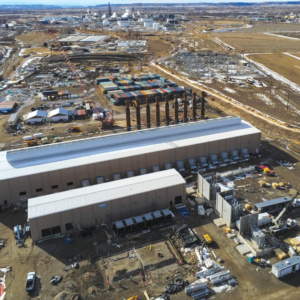Why is Yellowstone County not participating in the plan to develop passenger rail service through southern Montana? The question was posed to Yellowstone County Commissioners by Keith Lavacheck during a recent discussion meeting.
A group has organized and several counties have joined an effort to “resurrect the Hiawatha Passenger Line”. The Big Sky Passenger Rail Authority is urging a federal study of the feasibility of re-establishing the defunct Amtrak line that once carried passengers between Chicago and Seattle via Billings, Butte and Missoula. It was abandoned in 1979.
Lavachek asked the commissioners to be “forward looking,” and at least support the study to explore the feasibility and cost-benefit possibilities. “I think it is a good deal,” he said, “Shouldn’t we learn more about it“? The Big Sky Passenger Rail Authority is hopeful that federal funding for a study will come from Congress’ infrastructure funding bill passed over a year ago. Democratic Montana Sen. Jon Tester worked to include language in the infrastructure bill that set aside $15 million for a nationwide study.
Actually, re-establishing passenger rail service is not just a focus in Montana. Federal government websites states that “over the next 15 years, Amtrak’s vision for expansion will connect up to 160 communities throughout the United States by building new or improved rail corridors in over 25 states.”
Besides nostalgia for a by-gone era, there is hope that a southern rail passenger service would be a boon to the economy by encouraging greater tourism. It is also pointed out that in Montana’s far-flung open spaces there is a need for public transportation services that a passenger rail service would meet.
Although asked several times over the years, Yellowstone County has refused to join other Montana counties in support of the vision. Commissioner John Ostlund told Lavachek that their refusal has to do with being fiscally responsible with tax dollars. When they first considered the idea 13 years ago, said Ostlund, the estimated cost was a billion dollars. Since then, he suspects the cost would be at least $2 billion. “Passenger rail service doesn’t make money,” said Ostlund.
Lavachek said that signing on as a supporter of investigating the possibilities wouldn’t mean Yellowstone County would be committed beyond the feasibility study. Ostlund seemed to think it might.
Ostlund also pointed out that there would be other negative impacts of adding a passenger line such as slowing down freight lines.
Commissioner Mark Morse said, “We have finite resources and a lot of places to spend it.”
Lavachek suggested in an email sent to Yellowstone County Commissioners and the Billings Mayor that “We should not assume that this is going to cost $2, 3 or 10 billions until we see the study.”
Ostlund pointed out the Amtrak route has never made a profit and is hugely subsidized by federal dollars, and Montana’s Northern route is among the worst. Montana’s Amtrak route, called the Empire Builder, passes through Havre and the Flathead between Seattle and Chicago.
Initial research in a feasibility study reports that restoration of the route across Montana and six other states would generate more than $270 million in economic benefits and carry an estimated 420,000 passengers each year.
Nationally, Amtrak carried 22.9 million passengers in 2022, concentrated primarily in Eastern states. Montana’s portion of the route carried 433,000 passengers in 2022.
During COVID, even though Montana’s Amtrak was provided $1 billion in additional federal subsidy, Amtrak rail service through the Hi-line was dropped to three days a week.
Despite much reporting on proposals regarding the resurrection of passenger rail service throughout the country, there is scant mention of how much rail service is subsidize in the US. Prior to COVID, information from the Department of Transportation states that Amtrak received appropriations of about $1.5 billion in 2017 and $1.9 billion in 2018 to subsidize “intercity passenger rail services,” which of course does not include the cost in Montana. Amtrak’s capital spending in 2017 was $1.6 billion and its operating expenses totaled $4.2 billion.
Another report analyzed in 2018 a savings to the federal government of $20 billion should it eliminate funding for Amtrak.
Ostlund’s concerns about shifting the cost to local governments may not be unfounded. The same report about savings, noted that Amtrak subsidies were first authorized in the 1970s, as a temporary measure. Subsidies “were intended to help Amtrak become self-supporting.” It went on to suggest that “…states or localities that highly value the subsidized rail or air services should provide the subsidies.”
The Montana Department of Transportation website reports that in 2008 Amtrak estimated the capital and up-front costs “…to exceed $1 billion, annual operating cost would exceed $74 million, resulting in a $31 million annual operating loss.”



